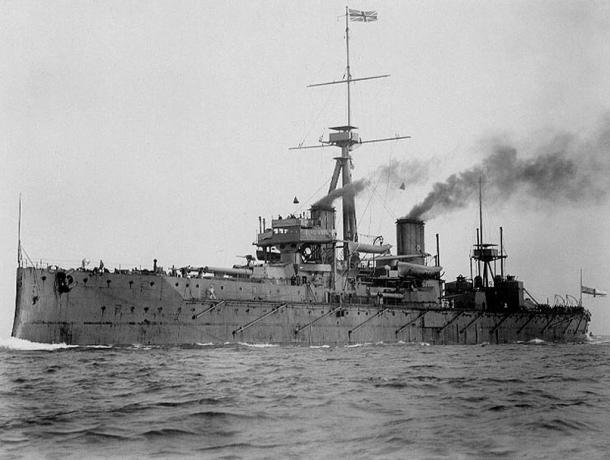To think about the history of first war we have to have the notion of continuity of important processes that took place in the 19th century, such as, “the spring of the peoples” of 1848, a popular uprising that was quickly repressed and reasserted the sovereignty of the empires of Germany, Austria-Hungary and Russia.
Otto Von Bismark, German Chancellor, will propose a policy of alliances in 1873, which became known as League of the Three Emperors.
Russia nurtured the idea of pan-Slavism, which sought to unite the regions of the Slav peoples into one great nation, and for this it had the support of Serbia in the Balkan region.
On the other hand, the Austro-Hungarian Empire sought domination over the region of Bosnia and Herzegovina that belonged to the weakened Turkish Empire. In the Balkan region was the center of the divergences between the Russian and Austro-Hungarian empires, this was enough to put an end to the league created by Otto von Bismarck in 1878.

In 1882, Bismarck established the triple alliance, putting Italy alongside Germans and Austro-Hungarians. Italy was not a relevant power for the scenario that was unfolding in Europe, and maybe that's why it had a dubious posture during World War I, signing secret agreements with Russia and France, countries belonging to the antagonistic bloc, the Triple Entente.
The Triple Entente, in addition to the two aforementioned countries, had England, which surprisingly broke the rivalry with France and signed a coalition agreement, all to thwart German ambitions that grew ever stronger and more menacing within the continent and beyond. world.
The alliances established in the world an alert of tension, any movement that affected any of the interests of these nations could result in the Great War. This is what happened in 1914 with the assassination of the heir to the throne of the Austro-Hungarian Empire, Archduke Franz Ferdinand in Sarajevo, capital of Bosnia.
It should be remembered that the central axis of the Balkan Question was pan-Slavism and Serbian nationalism. The annexation of the Bosnian regions by the Austro-Hungarian Empire hurt the interests of Serbia and Russia. So a Bosnian nationalist belonging to the secret Serb Black Hand group hit the archduke.

- Free Online Inclusive Education Course
- Free Online Toy Library and Learning Course
- Free Online Math Games Course in Early Childhood Education
- Free Online Pedagogical Cultural Workshops Course
From that fact, the politics of alliances entered the scene. The Austro-Hungarians made demands to Serbia, which felt affronted and refused to comply with them. Russia to stand in defense of the Serbs as the Austro-Hungarian Empire declared war on Serbia.
In this way, Germany, France and England also put their armies to march and soon the War would spread across the continent and other regions of the planet.
The center of the war was Germany and its great military power. The Germans started the war by attacking France and trying to enter French territory from the North, invading Belgium. This invasion of Belgian space was the pretext used for England to declare war on Germany.
The aim of the Germans was to invade Paris in the first few weeks and then be free to fight Russia, only the Russians were already advancing on the other battlefront and the Germans were divided. That movement war and invasion soon gave way to a war of positions and trenches, with armies fixed in position and launching their artillery.
In 1917, after successive defeats, the Russians involved in the Soviet revolutionary process overthrew the tsarist monarchy and decide to leave the war, made official with the Treaty of Brest-Litovski, signed in 1918.
Also in 1917, the Germans produce a sea blockade for England, preventing supplies to the island. It is in this movement that the US, until then neutral in the war, announces its entry after the sinking of the Lusitania liner, which led to the death of many Americans.
With the strength of the USA, which was the new industrial power in the world, the Triple Entente allies defeat the Germans and the countries that formed the Triple Alliance. THE "total war” also demanded the total and unconditional surrender of the enemy, who would be subject to the politics of the victors in the post-war period. O Treaty of Versailles (1919) was perhaps the great evil that caused the emergence of totalitarianism as a saving policy for European countries such as Germany and Italy.
After Germany's defeat in World War I, what was sought by the winning countries (mainly France and England) was to weaken the Germans with the so-called “punitive peace”; limited the number of soldiers in the German army to 100,000, restricted control of the German air force and navy, and redistribute the European borders left by the posthumous Habsburg and Austrian empires so as not to favor Germany in any aspect.
The USA, taking advantage of international visibility, proposed the creation of the League of Nations in 1919. In the suffocation of the German economy will be the driving force of the Second World War, allied to the crisis of the capitalism in the 20s.
Carlos Beto Abdalla
Historian and Master in Literary Studies
The password has been sent to your email.


